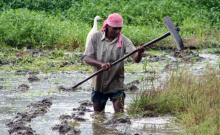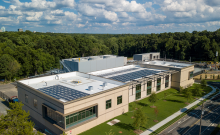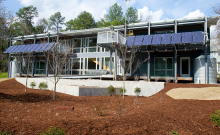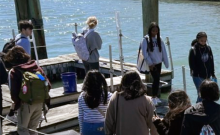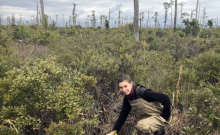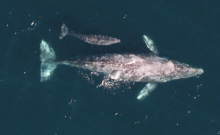Led by the Nicholas Institute for Energy, Environment & Sustainability
Bass Connections in Energy & Environment cuts across business, engineering, policy and science to educate tomorrow’s energy leaders, create new options through research and improve decision-making about energy.
Students at all levels and in all programs of study gain the knowledge, skills and experience needed to play leadership roles in a rapidly evolving energy future. Bass Connections in Energy & Environment raises the stakes for students and faculty by crossing boundaries through problem-focused education—boundaries among disciplines, educational levels and schools; geographic boundaries; and boundaries between the university, business, civil society and government.
Students can apply to be a part of a project team, register for a course, enroll in a curricular program, participate in energy events and join a student club.






